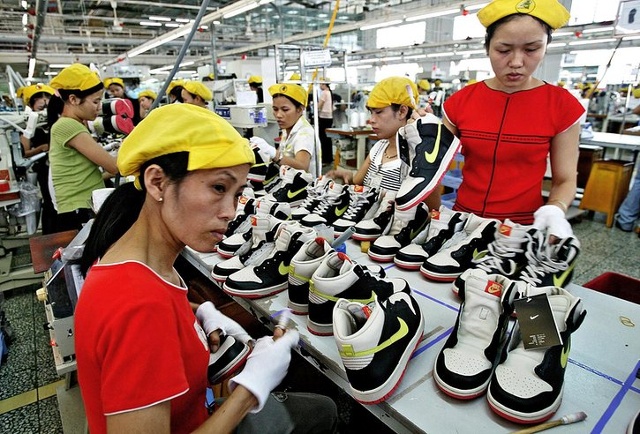[ad_1]
The International Labor Organization (ILO) has recommended that Vietnam extend social protection to those in the informal economy through a mix of contributory and non-contributory schemes, in order to achieve universal coverage.

Participants at a conference on “Reforming Social Insurance Policies – International Experience and Recommendations for Vietnam”, organized in Hanoi on November 29 by the Ministry of Labor, Invalids and Social Affairs (MoLISA) and the ILO, agreed that social insurance reform should be built on the results already achieved.
“Social insurance is a key pillar of the social security system,” Deputy Prime Minister Vuong Dinh Hue told the gathering.
“It makes a great contribution to realizing social advancement and justice in that access to social insurance is a universal social protection right and is linked to the goal of universal coverage with a proper roadmap.”
As a country with a rapidly aging population and a widespread informal economy, Vietnam is facing several challenges in terms of its social insurance system.
“In addition to encouraging achievements, Vietnam’s social insurance policies have shown limitations,” said Minister of Labor, Invalids, and Social Affairs Dao Ngoc Dung.
The scheme’s coverage remains limited due to low compliance in the formal sector and low coverage in the informal sector. Meanwhile, 6-7 million elderly people currently do not receive a pension.
“The challenge is how to reach ‘the missing middle’, who fall between social insurance and social assistance coverage,” said ILO Vietnam Director Chang-Hee Lee.
“Despite good progress in the last decade, only 13 million Vietnamese workers are registered for social insurance, accounting for just one-quarter of the workforce.”
He added that extending coverage among small and medium-sized enterprises (SMEs), workers with short-term contracts, and those without an employer-employee relationship requires additional effort and innovation.
It is important to extend social protection to workers in the informal economy as a way of formalizing and improving their working conditions.
“The expansion of health insurance in Vietnam shows that extending social insurance coverage is possible,” he said.
Vietnam’s pension fund will also face financial sustainability challenges in the near future. High replacement rates and low retirement ages, a significant number of members receiving lump sums, a high number of early retirements due to health issues, and other factors are among the causes.
“Parametric reforms in balancing contributions and payouts were addressed during the development of social insurance laws, most recently the revised Law on Social Insurance in 2014,” Minister Dung said.
“However, with an aging population and a restructuring of employment due to economic integration, climate change, and Industry 4.0, the pension fund remains at risk of an imbalance in the long run.”
The ILO suggested that Vietnam undergo further parametric reforms, which could include increasing the retirement age and reducing the replacement rate.
Mr. Chang-Hee Lee said the country should develop a multi-tier system for its social insurance scheme, inspired by the positive experiences with health insurance.
“Fiscal space for extending social protection exists even in non-rich countries in the world,” he added.
“The Vietnamese Government could explore all possible financing options to promote the Sustainable Development Goals and national development through decent jobs and social protection.”
Social insurance is a major pillar of the social protection system in Vietnam and access to social protection is a right acknowledged by the country’s constitution.
VN Economic Times
[ad_2]
Source link
